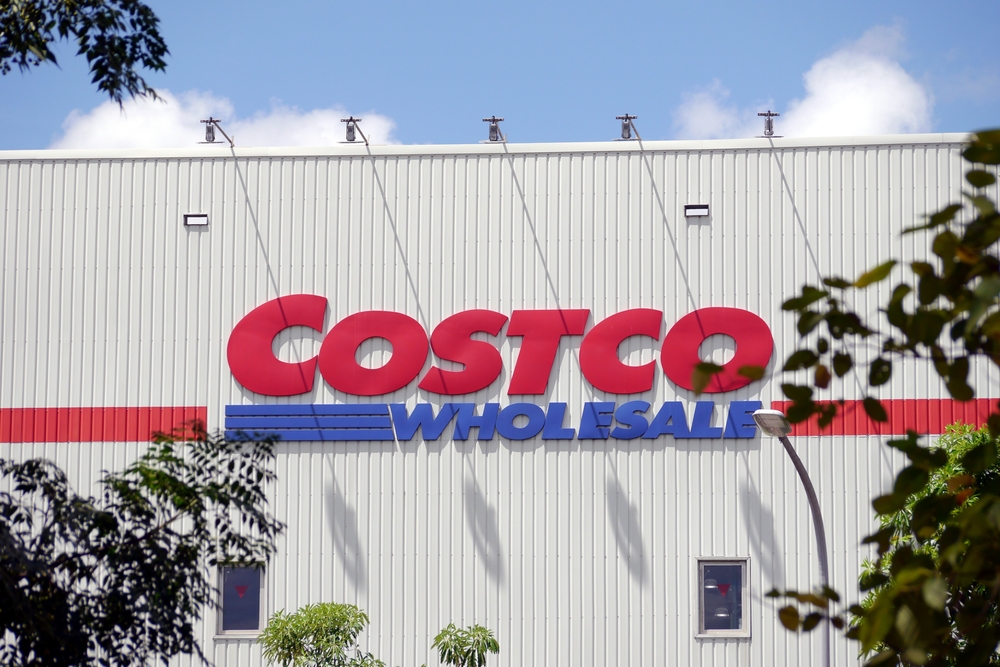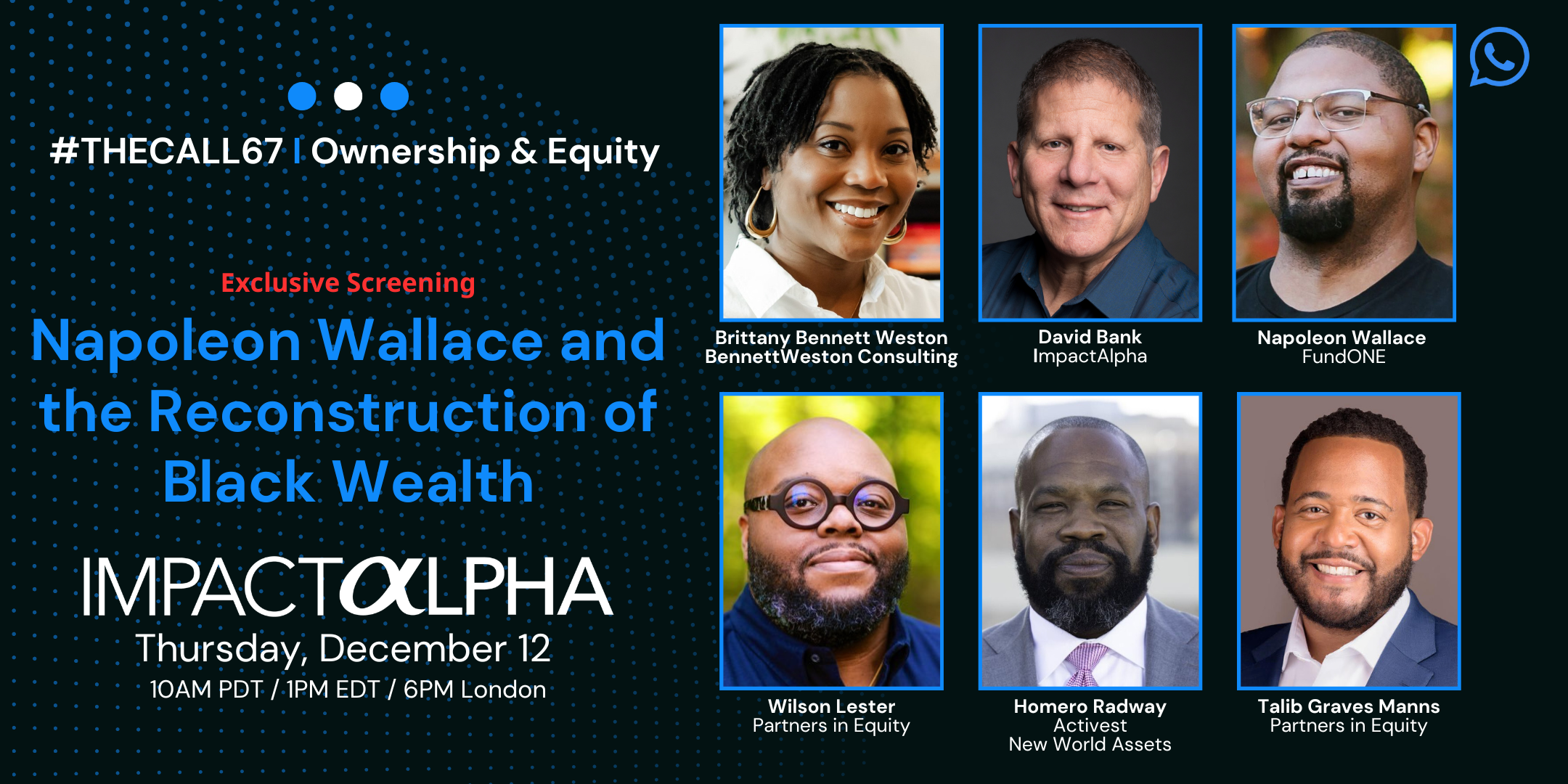The takeaway from two weeks of listening to Agents of Impact digest the results of the US election: It’s time to lean hard into economic justice and systemic change.
The coming period will see the dismantling of longstanding systems that no longer are working: what will replace them? “We’ve been trying to edit these systems and make them better,” Adasina Social Capital’s Rachel Robasciotti said on this week’s Agents of Impact Call. “Half of the country has told us that the time for editing is over. It’s not working for them.”
Impact investors have long seen wealth and income inequality as systemic risks “to our investment portfolios, and ultimately to society and democracy,” said Smitha Das of World Education Services. “And I think recent events have really seen that play out.”
The Call, which featured a dozen leaders sharing takeaways and calls to action, kicked off a week of candid conversations to chart the new risks and opportunities (see the pre-read, “Economic populism, disruptive innovation and other impact investing strategies for the era ahead”). In a guest post, the Rippel Foundation’s Becky Payne and Tiffany Manuel of TheCaseMade offered guidance on how to bridge differences to build a thriving future. A starting point: The majority support for local and national strategies and initiatives that raise wages, create quality jobs, expand ownership and build wealth for what at long last is being called “the working class.”
Impact investing priorities like affordable housing and infrastructure, employee ownership and small businesses, are issues “that the vast majority of Americans would consider beneficial and patriotic,” said impact advisor Antony Bugg-Levine. Such a patriotic narrative, he said, would signal that “we as an impact investing movement are aligned with what the vast majority of Americans want to see in how this economy changes.”
Economic populism
Das said her team is more resolute than ever in investing to address the root causes of inequality. “The wealth gap is an ownership gap,” said Das, whose portfolio of more than a dozen investments aims to increase access to asset ownership for those who have been historically locked out.
Jon Shell of Social Capital Partners said that across diverse constituencies, “the structure of the economy and ownership is an area of real agreement.”
In an interview with ImpactAlpha to accompany his new Agents of Impact podcast, Jim Sorenson of the Sorenson Impact Group said he is “cautiously optimistic” about opportunities to advance market-based solutions for inclusive wealth building and economic mobility, including in the ownership economy. Impact investors will need a new playbook. “Wherever you can align an issue or a theme with what Trump has won or championed or promised, there’s opportunity,” he says.
Legal defense
Rabasciotti is co-founder of Freedom Economy, a trade association to defend investors against legal attacks on racial equity and social-justice investing.
On a related call hosted by Mission Investors Exchange, Cynthia Muller said Kellogg Foundation is looking to strengthen the legal ecosystem and work with its fund managers “to galvanize and think strategically and opportunistically about how we can continue this work.” She urged organizations to protect themselves from risks – legal, cyber and financial. “We’re not backing off what we’re doing,” she said. “We’re talking about it differently.”
The threats are not abstract: A bill before Congress would let the Treasury Department punish dissent by stripping nonprofit organizations of their tax-exempt status, without disclosing reasons, as Amy Cortese reported. “I believe that investors should have the freedom to invest where they want to invest,” Jim Sorenson said in the interview. “Anything that would restrict that freedom, obviously would be of concern to me.”
A bright spot: The coordinated and well-funded attacks on DEI and ESG of the last few years has actually strengthened the field, through “the creation of an infrastructure that is needed to defend critical progress going forward,” said Fran Seegull of the US Impact Investing Alliance.
Power building
Candide Group has invested in co-ops, land ownership and renewable energy ownership across rural economies, Native American lands and other geographically diverse areas. “I don’t think that we have done enough as a movement to think about how we then parlay building economic power into political power,” Candide’s Morgan Simon said on The Call.
Wins will come by linking shareholder-led corporate accountability to real people’s lives and concerns, said Majority Action’s Bryant Sewell. “It was a grassroot energy that reshaped the debate on climate change, gun safety, workers rights and racial equities. The investor campaigns that won the most were those that tapped into that power.”
In a guest post, Sewell and co-director Whitney Shepard issued a call to action: “This moment demands more than passive resistance or strategic retreat. It demands bold action and forceful stewardship.”
Claire Mattingly of the US Impact Investing Alliance stressed the importance of coalitions and collaboration. “Policy is a team sport,” she said. “We need to be aligned.”












